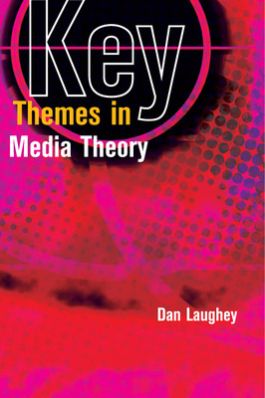Key Themes in Media Theory
Acknowledgements
What is media theory?
Behaviourism and media effects
Modernity and medium theory
Structuralism and semiotics
Interactionism and structuration
Feminisms and gender
Political economy and postcolonial theory
Postmodernity and information society
Consumerism and everyday life
Debating media theory
Glossary
References
Professor John Storey, University of Sunderland, UK
"The very best text books are not just summaries of complex ideas for a student audience or an introduction to a critical canon; the very best add something to the canon they reflect upon, and Dan Laughey’s Key Themes in Media Theory is one such book. [It] is not a means to an end, as many such books can be. Rather it is a motivational primer, and one that should send both students and teachers heading to the library toread the theorists presented here again, for the first time."
Richard Berger, Art, Design, Media; The Higher Education Academy, UK
- What is media theory?
- How do media affect our actions, opinions and beliefs?
- In what ways do media serve powerful political and economic interests?
- Is media consumerism unhealthy or is it empowering?
Using up-to-date case studies the book embraces media in their everyday cultural forms – music, internet, film, television, radio, newspapers and magazines – to enable a clearer view of the ‘big picture’ of media theory.
In ten succinct chapters Dan Laughey discusses a broad range of themes, issues and perspectives that inform our contemporary understanding of media production and consumption. These include:
- Behaviourism and media effects
- Feminist media theory
- Postmodernity and information society
- Political economy
- Media consumerism

